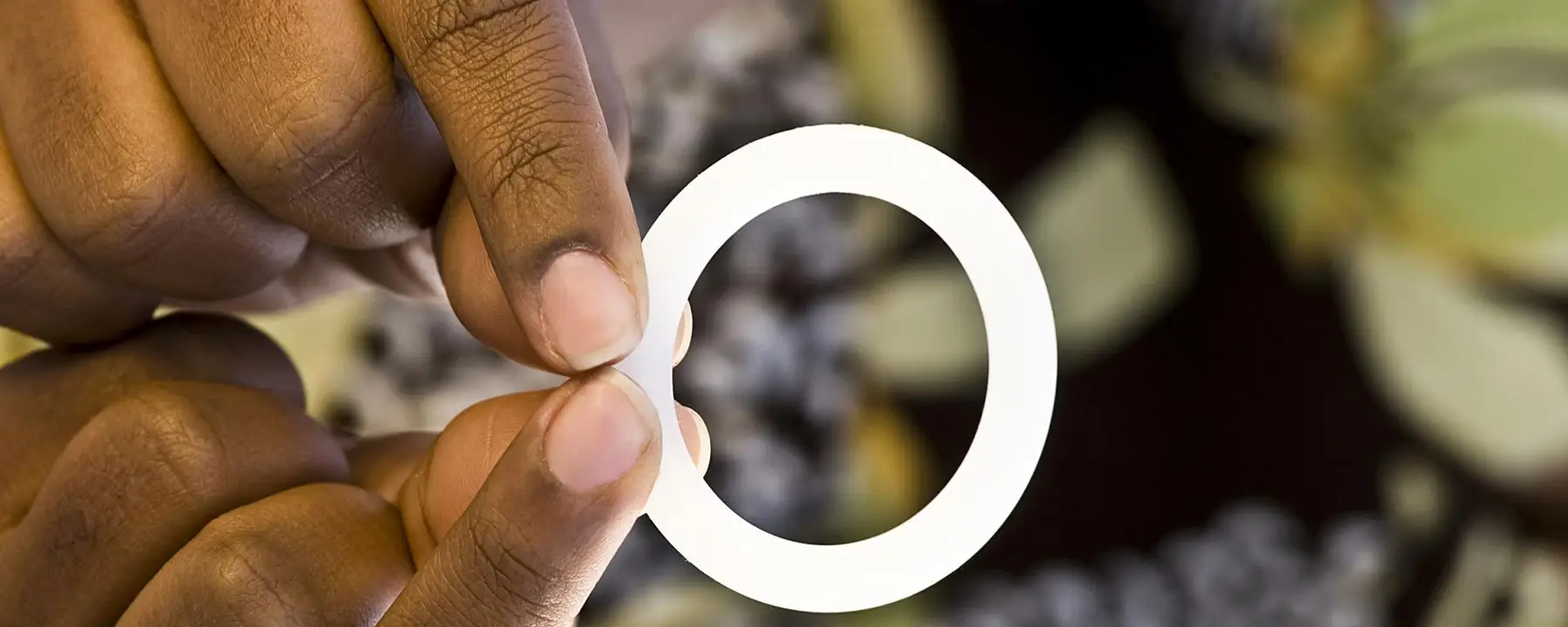Making life-saving strides in HIV research and women’s empowerment
Of the 24.7 million people living with HIV-1 infection in Sub-Saharan Africa, more than half are women, and throughout the region, the highest mode of transmission is unprotected heterosexual sex. Some research indicates that women are at an unacceptably high risk of acquiring HIV-1 because prevention methods such as male or female condoms require the participation or consent of a male partner. In recent years, the international health community has made it a global priority to develop an HIV prevention option that offers women greater control over their health.
Unfortunately, studies have shown that many at-risk women are unable to consistently use new prevention options such as antiretroviral (ARV) gels and tablets.
In 2012, a team of researchers launched a multinational randomized controlled trial to determine whether a vaginal ring containing an ARV could offer women an effective option to prevent HIV-1 infection. The ring was designed to release an ARV drug called dapivirine over the course of a month, potentially reducing the user’s risk of acquiring HIV-1.
Preventing HIV with A Monthly Silicone Vaginal Ring
Known as ASPIRE, the study enrolled more than 2,600 HIV-free women ages 18-45 years who were at high risk for infection. The study spanned 15 sites in Malawi, South Africa, Uganda, and Zimbabwe. Participating women received either the protective ring or an injection delivering dapivirine or a placebo ring or an injection. All study participants received HIV prevention services at each study visit, including risk-reduction counseling, partner testing, treatment of sexually transmitted infections for participants and partners, and free condoms.
Overall, the study found the ring reduced the risk of HIV infection by 27 percent in the study population, but that results varied by age and adherence to ring use. Specifically, HIV infection was reduced by 56 percent for women 21 and older, whereas the risk for women ages 25 years and older, who used the ring most consistently, was reduced by 61 percent.
Our researchers oversaw the behavioral aspect of the trial and managed the qualitative research component of ASPIRE. We collected in-depth interview and focus group data from participants in the study, and explored their experience and acceptability of a vaginal ring, including how well it fit into the context of their lives.
Our investigators co-authored a publication in the New England Journal of Medicine about the overall ASPIRE trial results. We are also disseminating our results to the research community and other stakeholders at HIV/AIDS conferences in the coming year.
Changing the Future of HIV Prevention
As the first trial to demonstrate the effectiveness of a long-acting microbicide in women, ASPIRE is an important milestone in the field of HIV prevention. The ASPIRE study is also an important step towards determining whether the dapivirine ring could be a viable option for reducing HIV acquisition among women in Africa and around the globe.
Ultimately, our research in support of search for drug delivery devices that are acceptable and easy to use will help increase choices for women who need protection from HIV.
- National Institute of Allergy and Infectious Diseases
- Eunice Kennedy Shriver National Institute of Child Health and Human Development
- National Institute of Mental Health
- Microbicide Trials Network

